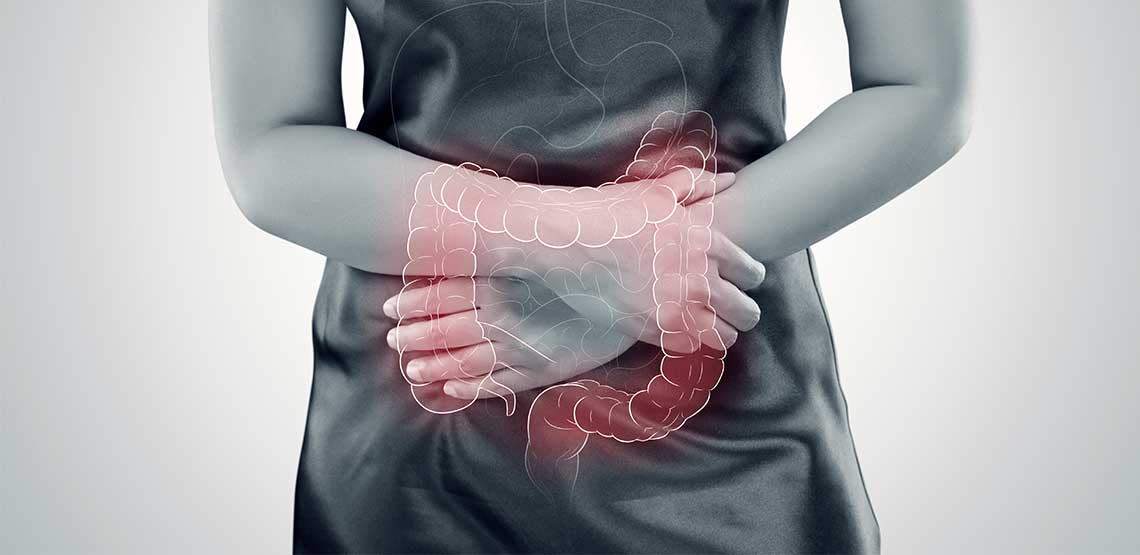What Is Ulcerative Colitis?
Ulcerative Colitis (UC) is an inflammatory disease affecting the entirety of the digestive tract. Those with ulcerative colitis develop sores or ulcers in the digestive tract — in the lining of the large intestine specifically — the result of which is pain, bleeding, fatigue, and an urgent and frequent need to go to the bathroom, among other symptoms. This article will look at the symptoms, along with treatment options like VELSIPITY, a new DFA-approved once-daily pill for the treatment of moderately to severely active UC in adults.
Causes of Ulcerative Colitis
Unlike some other diseases that have a clear-cut cause, the underlying cause of developing ulcerative colitis is still somewhat fuzzy, and scientists are still working to fully understand it. More research will likely uncover a more clear-cut explanation in the future, as it continues to be studied.
In general, though, ulcerative colitis is born out of an overactive response by the body’s immune system in reaction to something like a virus or bacteria that finds its way into the body. Unlike in a normal, healthy immune system response, where the body reacts to something foreign by causing temporary inflammation that subsides when you’re healthy, in the case of UC, the inflammation never stops. Over time, this inflammation causes sores and ulcers in the large intestine lining.
It’s been posited that poor diet and environmental factors may contribute to the onset of ulcerative colitis. Genetics, your body’s microbiome and stress also may play a role. Some suggest these factors may worsen the disease versus cause it on their own.
Who is at risk for UC? Though anyone, young or old, male or female, regardless of race or family history can develop the disease, there does seem to be a genetic link. If you have an immediate family member with ulcerative colitis, you are at greater risk of developing it yourself. (Though by no means is it for certain that you will.)
Typically, the disease sets in before you reach the age of 30, though it can occur later in life. In general, men have a higher risk of developing the disease later in life compared to older women.
Symptoms
In general, the main symptoms of ulcerative colitis may include:
- Rectal bleeding.
- Abdominal pain.
- Urgent bowel movements.
- Fatigue.
- Fever.
- Inability to keep weight on.
- Rectal pain.
- Diarrhea, often bloody or with pus.
More specifically, symptoms may vary somewhat depending on the type of UC one has. For example, with ulcerative proctitis, the inflammation is localized to the rectum only and symptoms include:
- Rectal bleeding.
- Urgent bowel movements.
In left-sided colitis, the inflammation extends throughout the rectum but also up into the colon and up to the area near the spleen. In this case, symptoms are slightly different:
- Weight loss.
- Diarrhea, often bloody.
- Pain in the left side of the torso.
- No appetite.
In the third type of ulcerative colitis, known as extensive colitis, the inflammation covers the largest surface area — the entirety of both the rectum and the colon. Symptoms may be the same as with left-sided colitis (no appetite, weight loss and bloody diarrhea), but also can include pain in the entire abdomen.
Symptoms of ulcerative colitis of all types may vary in severity and can come and go over time.
Since there is such a range of symptoms that can come and go, and since you may or may not experience all of them, the only way to conclusively determine if UC is at the root of your symptoms is to see your doctor and get tested.
Velsipity for Ulcerative Colitis
Velsipity is an oral medication designed to assist adults experiencing moderately to severely active Ulcerative Colitis. Notably, after 12 weeks of using Velsipity, a significant 27% of patients achieved clinical remission, demonstrating its efficacy in managing this condition. Additionally, the Copay Savings Program offers eligible commercially insured patients the opportunity to benefit from the treatment with potential out-of-pocket costs as low as $0. This dual advantage of clinical effectiveness and financial support underscores Velsipity's commitment to providing a comprehensive solution for individuals dealing with Ulcerative Colitis.
Differences in Symptoms Between UC and IBS
Ulcerative Colitis and Irritable Bowel Syndrome (IBS) are two common yet totally different conditions that are often confused or referred to interchangeably. In reality, they are completely different illnesses with different treatments. However, it’s true that if you have ulcerative colitis, you may have symptoms similar to those of IBS. However, UC is a more specific disease that falls under the broader umbrella of IBS.
The big difference though is that with ulcerative colitis, you will have ulcers or sores which will be observed through testing like colonoscopies. Because of the presence of these sores or ulcers, a patient with UC will certainly experience rectal bleeding, which would not be present in someone with IBS only.
In Conclusion
There are various types of ulcerative colitis in terms of severity, symptoms and where exactly in the digestive tract the inflammation is located. In general, all types of UC tend to emerge gradually, and all can negatively impact one’s ability to eat certain foods and enjoy normal life activities.
There is no known cure that completely alleviates ulcerative colitis. However, in many cases, with the proper treatment, it is manageable; many with UC are living a completely normal lifestyle despite their illness. With some treatment approaches and in some cases, the disease may even go into remission.
Here is everything you need to know about the causes of this disease, where it originates and the symptoms it can cause, plus various types of ulcerative colitis and how it differs from other diseases affecting the digestive tract.


